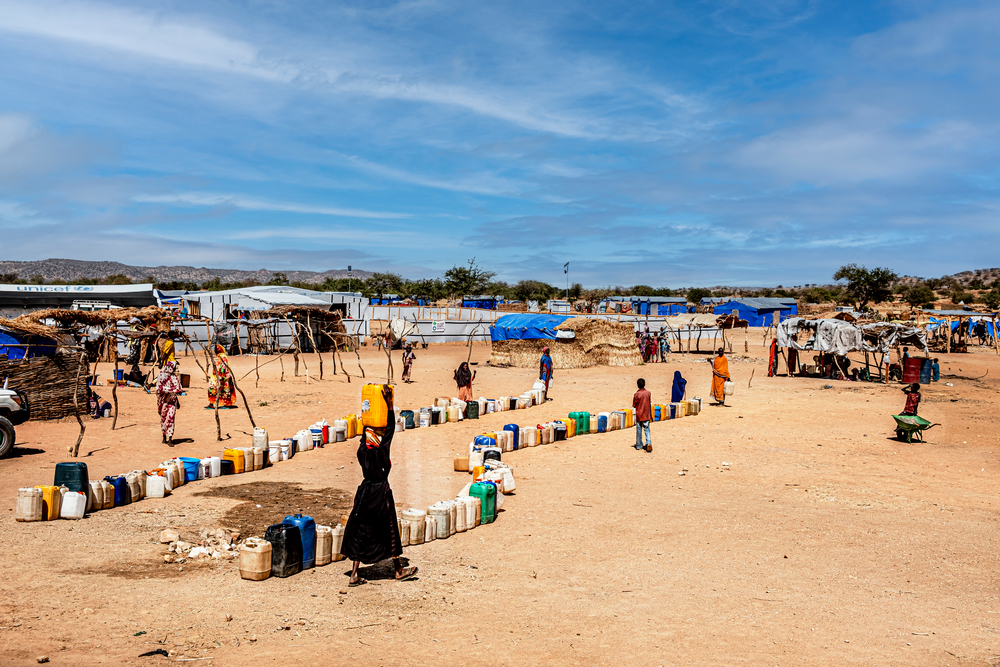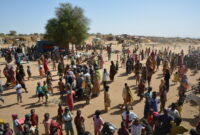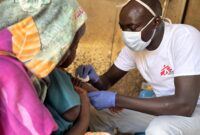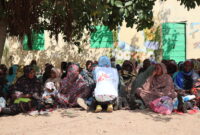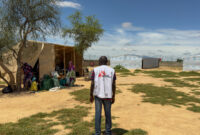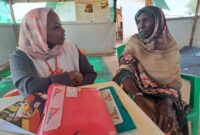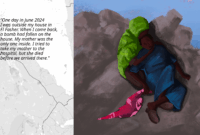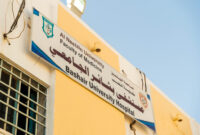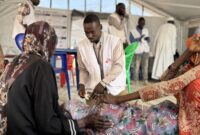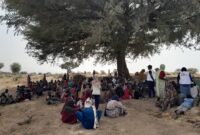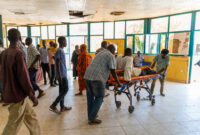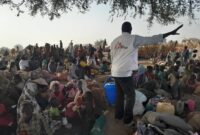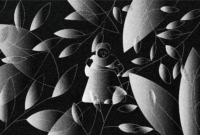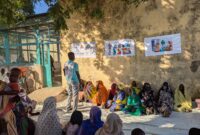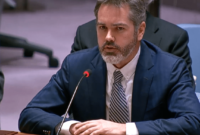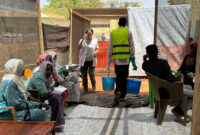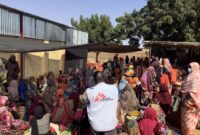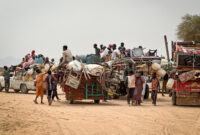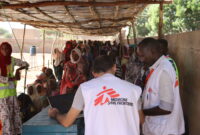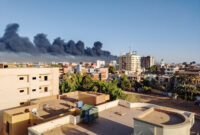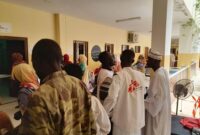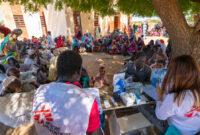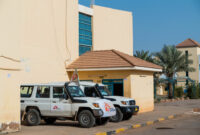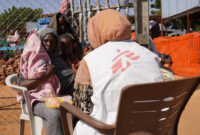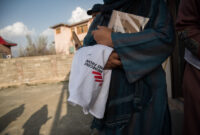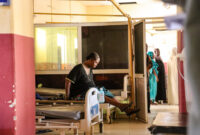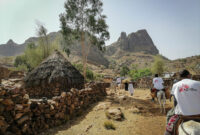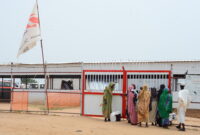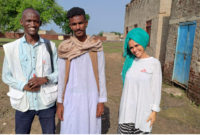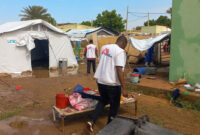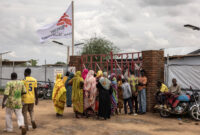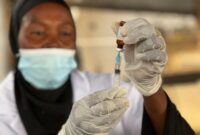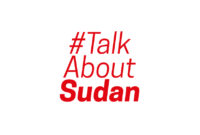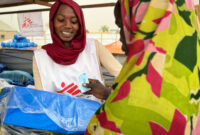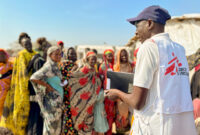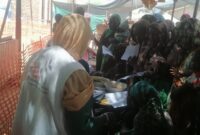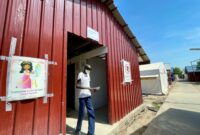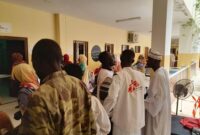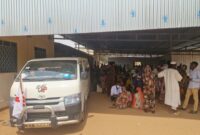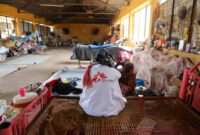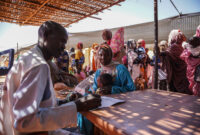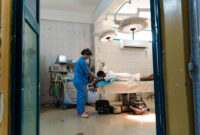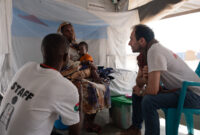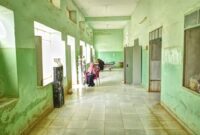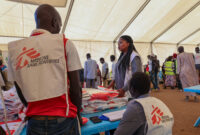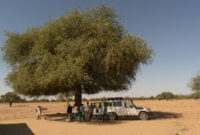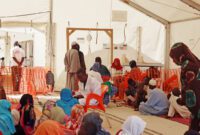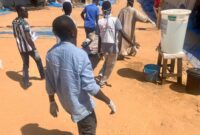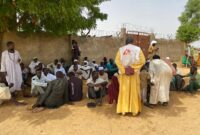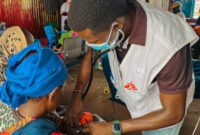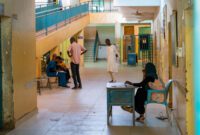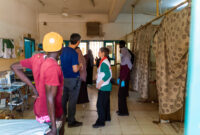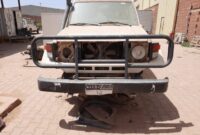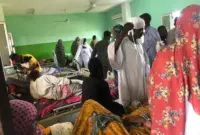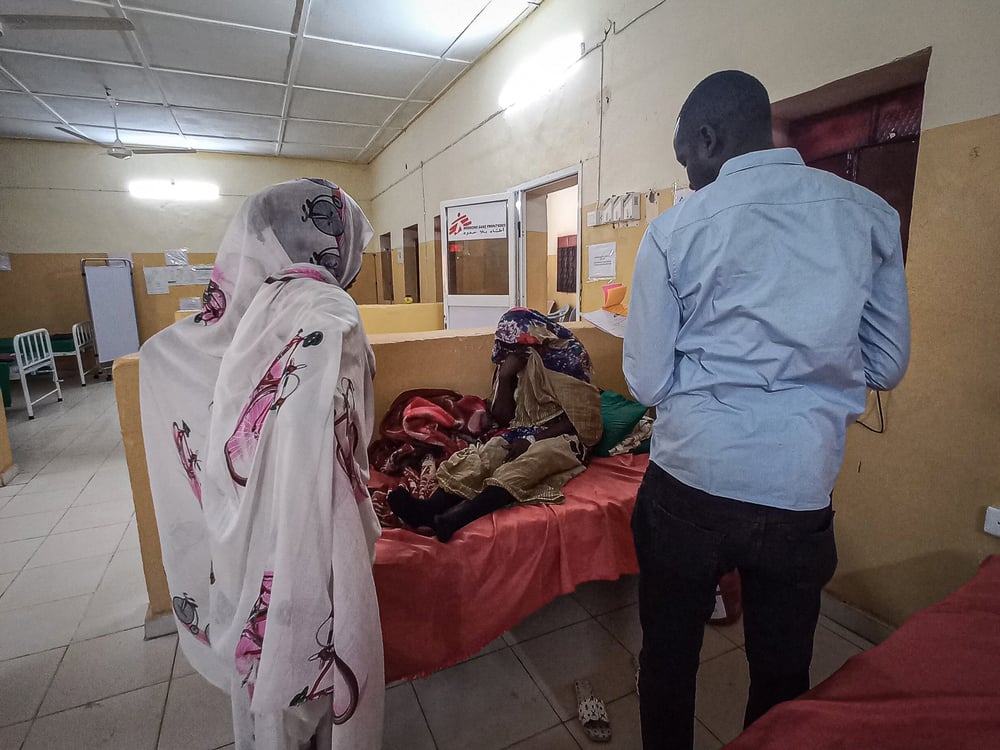Chad: MSF teams rush to find new water sources as refugees´ health risks escalate
- Sudanese refugees and returnees in eastern Chad, are desperately short of clean water. In Metche camp, refugees receive just six litres of water per person per day, compared to the 20 litres recommended in emergencies.
- The lack of safe water, latrines and proper waste management presents a major public health risk, says MSF, whose medical teams are seeing an increase in skin conditions, gastrointestinal infections, and acute watery diarrhoea.
- MSF water and sanitation engineers are rushing to identify new water sources to increase the water available to refugees in Metche and other camps in the region.
People displaced from Sudan sheltering in camps in eastern Chad are living in dire conditions, desperately short of clean water and decent sanitation. Doctors Without Borders/Médecins Sans Frontières (MSF) teams are providing water and sanitation assistance in three camps in the border region.
Some 40,000 people in Metche refugee camp are receiving just six litres of water per person per day for drinking, cooking and washing – far below the 20 litres of water per person per day recommended by the World Health Organization (WHO) in emergencies. The lack of water, latrines and proper waste management presents a serious risk to their health, says MSF medics, who are treating increasing numbers of people for skin conditions, gastrointestinal infections and acute watery diarrhoea, which is particularly risky for malnourished children.
Chad has long grappled with water scarcity but the strain on resources in places like Metche as now reached a critical level. After the war broke out in Sudan in April 2023, large numbers of Sudanese refugees and Chadian returnees crossed the border into Chad. Initially staying in transit camps in the town of Adré, some were subsequently relocated to camps across the province. In early September, around 40,000 were resettled in Metche, a remote arid region 40 km from Adré. Three months later, with the rainy season over, they face severe water shortages.
Harnessing traditional methods of water collection
Until recently, the Metche region had no modern water infrastructure; instead, its 2,000 to 5,000 residents relied on traditional methods of collecting water from dry riverbeds, or wadis, and using wells dug by local farmers.
MSF water and sanitation teams have been working urgently to dig boreholes. The camp and the hosting community are receiving now some 160000 litres of water daily. The six litres of water per person per day that it represents is too little to survive on without compromising people’s health. MSF teams continue to urgently seek new water sources, including drilling new boreholes – a mechanized process which is both time-consuming and expensive.
“Working in this region poses logistical challenges due to its remoteness and poor roads,” says MSF water and sanitation advisor Paul Jawor. “Mobilizing drilling companies here takes time – previous time that people cannot afford.”
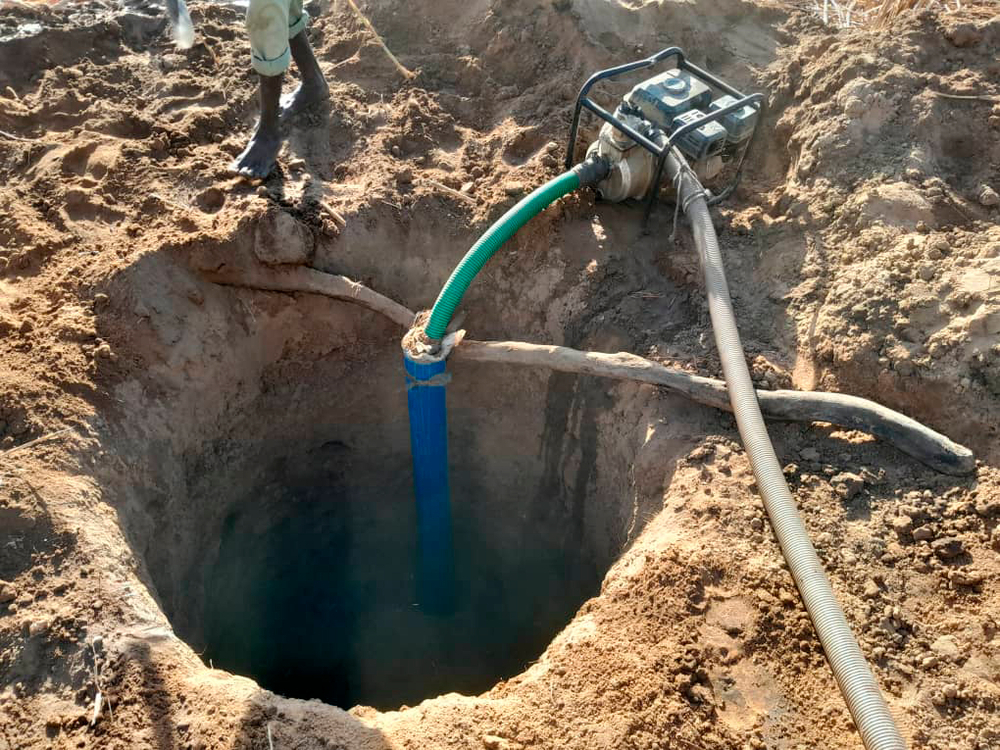
“To respond to the emergency more quickly, we are utilising existing community knowledge and methods of water collection, while introducing tools to expedite water collection,”
Working closely with the local community, MSF water and sanitation engineers are diversifying their methods by using traditional ways of collecting water.
“People are used to gathering water from the dry wadis, and they continue to do so as amount of water we can distribute currently is insufficient”, says Jawor. “Alongside community leaders, we’ve now implemented a water system in the dry riverbed to capture the rainwater that permeated the sand during the previous rainy season. While not a permanent fix, it can provide some immediate relief to part of the water crisis and could be used in the future by the local community.”
Despite efforts by MSF teams to identify and establish new water sources, there is much uncertainty regarding the amount and quality of the available ground water supply.
Health risks surge
Some people in Metche camp are unable even to access six litres of water per day, especially those who live far from a water distribution point. With safe water in such a limited supply, people are forced to prioritise its usage.
“Mothers tell us they have 20 liters of water for seven people in their house,” says MSF project medical referent Marina Pomares Fuentes. “They’re compelled to choose: drink or cook?”
“Their priority isn’t maintaining hygiene.”
The lack of hygiene creates health hazards. “The environment we are living in in is very dirty,” says Fatuma, engineer and women’s representative of the camp. “Without enough water, people cannot wash their clothes or themselves, which is huge problem for the children.”
Nadia Omar Mohammad, 30, describes the daily choices she must make over water use:
“The water distribution is very far [from my home] and I bring back two jerrycans of water per day for a family of eight,” she says. “Clean water is only for cooking, drinking and washing for prayer. We wash the clothes and our children in the wadi. This is the only way we can manage, and sometimes we don’t even have enough water for drinking.”
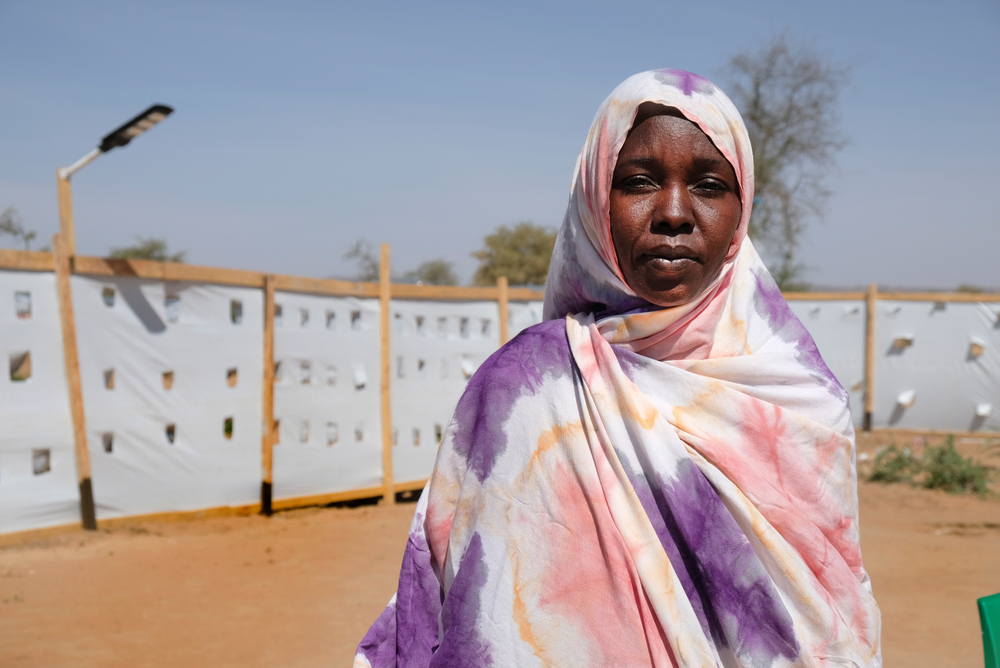
As MSF’s outpatient clinic in Metche, staff have seen a surge in infections and skin diseases, particularly among infants and children. In the past four weeks, 16 per cent of the patients treated by MSF in Metche had eye infections or skin diseases such as rashes, dermatitis and scabies.
MSF medics are especially concerned about the rise in cases of acute watery diarrhoea, especially among children under five who are already suffering from malnutrition. In the past month, 13 per cent of consultations at MSF’s clinic in Metche were related to diarrhoea and digestive infections.
“The illnesses we’re witnessing are entirely preventable,” says Fuentes. “It’s a vicious circle: unclean water and lack of food make people sick, yet without safe water, they are just getting sicker.”
MSF activities in eastern Chad
MSF teams in eastern Chad are responding to the medical and humanitarian needs of Sudanese refugees and Chadian returnees in the provinces of Ouaddaï and Sila. In Ouaddaï province, MSF teams are providing medical care in the Ministry of Health hospital and paediatric unit in the border town of Adré, in Adré transit camp and at the border itself. MSF teams are also running a hospital in Ourang camp and an outpatient clinic in Metche camp. In Sila province, MSF mobile clinic teams are providing medical care in Daguessa and Goz Achiye and supporting health facilities.
MSF water and sanitation engineers are providing refugees with clean water in three camps: Adré, Ourang and Metche. In Adré transit camp, MSF teams are currently providing 750 cubic meters of water a day, and people are receiving some 5.5 litres of water per person per day. In Ourang camp, where MSF is also providing clean water, refugees are currently receiving 8.6 litres of water per person per day. In Metche camp, where MSF is the main provider of water, refugees are currently receiving 6 litres of water per person per day.
